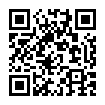Влияние креативности на выбор стратегии поведения в межличностном конфликте
Научная статья
Аннотация
Литература
Анцупов А. Я. Конфликтология: учебник для вузов / А. Я. Анцупов, А. И. Шипилов. – Москва: ЮНИТИ, 2000. – 551 с.
Боженко В. А. Определение понятия «конфликт» / В. А. Боженко // Вестник Российского университета дружбы народов. Серия: Юридические науки. – 2000. – № 2. – С. 143–147. – EDN KTXJYT.
Вишнякова Н. Ф. Психологические основы развития креативности в профессиональной акмеологии: специальность 19.00.13 «Психология развития, акмеология»: диссертация на соискание ученой степени доктора психологических наук / Н. Ф. Вишнякова. – Москва, 1996. – 394 с. – EDN NLJDFN.
Волков Ю. Г. Креативность: исторический прорыв России. – Москва: Социально-гуманитарные знания, 2011. – 328 с.
Гетманская Е. В. Личность: креативные характеристики / Е. В. Гетманская // Вестник Московского государственного гуманитарного университета им. М. А. Шолохова. Педагогика и психология. – 2010. – № 1. – С. 25–33. – EDN LOOJNF.
Гуськова Е. А. Связь креативности и агрессии в подростковом возрасте / Е. А. Гуськова // Психология XXI века: тез. Междунар. межвуз. науч.-практ. конф. – Санкт-Петербург, 2001. – С. 297–298.
Дубровина Л. Е. Взаимосвязи креативности, стилей мышления и способов разрешения конфликтов / Л. Е. Дубровина // Человеческий фактор: Социальный психолог. – 2020. – № 1(39). – С. 42–48. – EDN FTEQJZ.
Золотарев С. П. Понятие креативности и инноваций - современный философский анализ / С. П. Золотарев // KANT. – 2022.– № 2 (43). – С. 111–115.
Максимова С. В. Творчество: созидание или деструкция? / С. В. Максимова. – М.: Академический проект, 2006. – 224 с.
Салов Ю. И. Психолого-педагогическая антропология: учеб. пособие для студ. высш. учеб. заведений / Ю. И. Салов, Ю. С. Тюников. – Москва, 2003. – 254 с.
Сергеева Д. Н. Развитие креативности педагогов в процессе разрешения конфликтов / Д. Н. Сергеева // Образование и наука. – 2016. – № 5 (134). – С. 107–122. https://doi.org/10.17853/1994-5639-2016-5-107-122
Терелянская И. В. Психологический анализ феномена креативности как характеристики личности / И. В. Терелянская // МНКО. – 2012. – № 2. – С. 238–239.
Федорова А. А. Взаимосвязь креативности и конфликтного поведения сотрудников организаций / А. А. Федорова // Организационная психология. – 2018. – Т. 8, № 2. – С. 119–157. – EDN XVAJLN.
Barron F. Creativity, intelligence and personality / F. Barron, D. Harrington // Ann. Rev. of Psychol. – 1981. – Vol. 32.
Guilford J. P. Measurement of creativity / J. P. Guilford // Explorations in creativity. – N.Y., 1967.
Guilford J. P. The nature of human intelligence / J. P. Guilford. – NI: Me Gaw Hill, 1967.
Kilmann R. H., Thomas K. W. Developing a Forced-Choice Measure of Conflict-Handling Behavior: The «MODE» Instrument / R. H. Kilmann, K. W. Thomas // Educational and Psychological Measurement. – 1977. – Vol. 29. – № 2. – P. 309–325.
Torrance E. The nature of creativity as manifest in the testing / E. Torrance // The nature of creativity. – Cambridge, 1988.
Wallach M. A. A new look at the creativity-intelligence distinction / M. A. Wallach, N. Kogan // Journal of Personality. – 1965. – Vol. 33(3). – P. 348–369. https://doi.org/10.1111/j.1467-6494.1965.tb01391.x

Поступила: 25.12.2023
Опубликована: 27.02.2024





